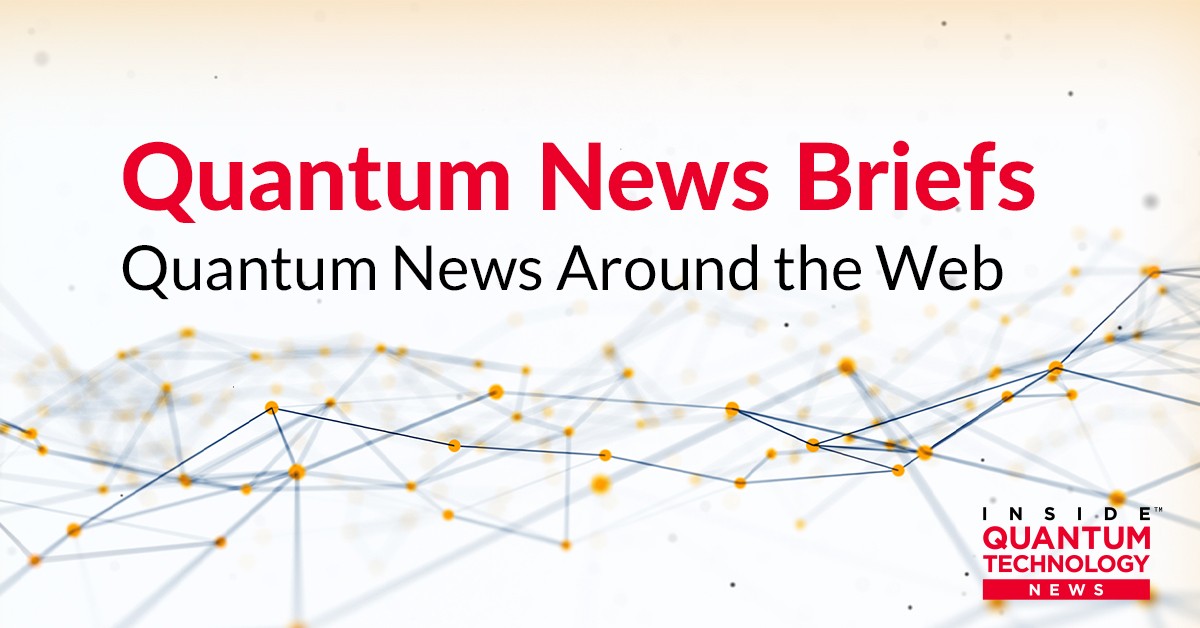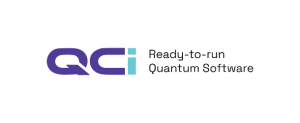Quantum News Briefs November 24: Mitacs & Hon Hai Research Institute (Foxconn) announce new Canadian quantum research project; Q-CTRL and Classiq partner to improve quantum algorithm development; QCI Software tool translates QUBO problems into Hamiltonian Equations + MORE

Quantum News Briefs November 24 opens with news “Mitacs & Hon Hai Research Institute (Foxconn) announce new Canadian quantum research project” followed by “Q-CTRL and Classiq partner to improve quantum algorithm development”. Third is announcement “QCI Software tool translates QUBO problems into Hamiltonian Equations” + MORE in a discussion about the need for quantum talent.
*****
Mitacs & Hon Hai Research Institute (Foxconn) announce new Canadian quantum research project

Mitacs, a non-profit organization committed to fostering innovation in Canada, and Hon Hai Research Institute, the research arm of the world’s largest electronics manufacturer Hon Hai Technology Group (“Foxconn”), signed a memorandum of understanding November 23 to advance quantum technology in Canada, with the active support of the Canadian Trade Office in Taipei. Quantum News briefs summarizes.
Through the MOU, the Hon Hai Research Institute will focus on quantum research with Mitacs providing advice on funding and talent development — drawing on its vast network of leading post-secondary research institutions in Canada.his agreement is the first step in Foxconn’s ambitious plan to expand its R&D and innovation capability in Canada. In addition to quantum research, Foxconn is seeking to develop new research and design facilities in Canada — creating jobs and driving economic growth across the country.Click here to read complete WebWire announcement.
*****
Q-CTRL and Classiq partner to improve quantum algorithm development
Q-CTRL, a global leader in quantum control infrastructure software, and Classiq, the leader in quantum algorithm development software, have announced a partnership to provide an end-to-end platform for designing, executing, and analyzing quantum algorithms. Quantum News Briefs summarizes the announcement below.
The new partnership will integrate Classiq’s Quantum Algorithm Design platform with Q-CTRL’s advanced quantum control techniques designed to boost hardware performance. The collaboration combines the sector’s leading quantum product teams uniting research by expert developers, physicists and scientists.
The integration will provide a single interface where developers can use both solutions to create algorithms and run them with high-performance error reduction techniques, simplifying the end-to-end process of getting useful insights from quantum computers. The powerful technologies developed by both companies reduce the need for users to possess deep quantum computing expertise, allowing developers to focus on domain-specific applications that matter most to them.
Customers can use these tools out-of-the-box to get more out of today’s hardware and prepare to build useful quantum algorithms to solve some of the world’s most difficult computational problems, such as finance, quantum machine learning for drug discovery, and optimization problems for logistics. Click here to read announcement in-entirety.
*****
QCI Software tool translates QUBO problems into Hamiltonian Equations
 Quantum Computing Inc. announced that the company has released free software that will enable D-Wave customers to rapidly translate their quadratic unconstrained binary optimization (QUBO) problems into Hamiltonian equations that can then be solved by QCI’s industry-leading Dirac 1 Entropy Quantum Computing (EQC) system. Using Dirac 1, QCI is offering users of quantum annealers the ability to quickly solve real-world business problems of up to 10,000 variables.
Quantum Computing Inc. announced that the company has released free software that will enable D-Wave customers to rapidly translate their quadratic unconstrained binary optimization (QUBO) problems into Hamiltonian equations that can then be solved by QCI’s industry-leading Dirac 1 Entropy Quantum Computing (EQC) system. Using Dirac 1, QCI is offering users of quantum annealers the ability to quickly solve real-world business problems of up to 10,000 variables.
“We recognize, based on market feedback, that users of quantum technologies are frustrated by their inability to solve problems with business-relevant scale,” said Dr. William McGann, QCI COO and CTO. “We believe our solution is a game changer for users of quantum annealers, who were previously limited to problems of small sizes. Now instead of getting maxed out, they can translate their existing QUBOs into Hamiltonian processes in a matter of minutes, expand the problems as needed, and solve them with Dirac 1.”
Dirac 1, QCI’s first commercially available EQC system, solves real world business problems using quantum photonics effects. This advanced proprietary technology supports full stack quantum solutions that enable customers to run complex optimization problems on a stable, room temperature, desktop platform. The system is available through an online subscription service offered directly by QCI.
******
ZDNet: Quantum computing companies need talent
 Owen Hughes, Senior Editor of ZDNet discusses the skills shortage in quantum computing in his November 22 article. Quantum News Briefs summarizes Hughes’ article below.
Owen Hughes, Senior Editor of ZDNet discusses the skills shortage in quantum computing in his November 22 article. Quantum News Briefs summarizes Hughes’ article below.
Governments and businesses are funnelling tens of billions of dollars into quantum computing, and yet progress in the industry will remain elusive unless the industry can recruit the people to make that happen.
But not all jobs in quantum computing require a PhD-level education in quantum theory, advanced mathematics or computer sciences. In fact, many roles require traditional hardware and software skills – meaning tech specialists might find they need minimal or no retraining for a career in quantum computing.
As mass layoffs create turmoil at Big Tech, British quantum computing startup Universal Quantum believes now is the ideal time for technology professionals to transfer their skills to the burgeoning quantum sector.
Universal Quantum is on a recruitment drive after recently securing €67 million ($68.5m) in funding – the biggest government contract awarded to a single quantum computing company. Universal Quantum is looking for all manner of skills, from circuit chip designers, digital design professionals and field programmable gate array (FPGA) engineers, to coders who fancy the challenge of writing entirely new software for an entirely new platform.
The problem isn’t just in the industry shortage of in-demand tech skills – there are also academic blockers in the talent pipeline. According to Hensinger, there simply aren’t enough PhD graduates or physicists “who really understand what goes on under the hood” of a quantum computer.
“There are some areas of talent that are incredibly niche and very quantum-specific, so obviously that has the same challenges you have for any niche talent pool – you have to make sure that you’ve got a really strong employer brand, a really great employee value proposition – that people understand their part in working towards what you’re doing,” says Samantha Edmondson, head of people at Universal Quantum. Click here to read article in-entirety.
*****
Sandra K. Helsel, Ph.D. has been researching and reporting on frontier technologies since 1990. She has her Ph.D. from the University of Arizona.























